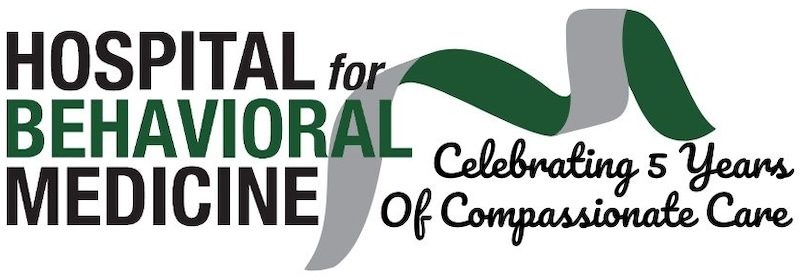Hospital for Behavioral Medicine offers FREE Assessments 24/7, call us toll-free at
Frequently Asked Questions
at Hospital for Behavioral Medicine
Please call (844) 319-0000 with any questions not found in our FAQs and we will be happy to help.
It is not uncommon to have questions about mental health treatment if you or a loved one are showing signs and symptoms. This FAQ section is designed to answer your questions about what happens before, during and after an inpatient or outpatient treatment period.
What is the intake process like & can I schedule an appointment?
No-cost assessments are offered at HBM 24 hours a day, 7 days a week by calling (844) 319-0000. Walk-in appointments are also available. We will ask you to complete a small amount of paperwork to gather your medical history and basic information. You will meet with a licensed mental health professional to discuss your concerns and to provide any additional information that may be needed. Following the assessment, the intake worker will make a treatment recommendation and discuss your options. We will also provide additional community resources if you need treatment that is not provided at our hospital.
Do I need a referral from my doctor or other medical professionals to be seen at Hospital for Behavioral Medicine?
Individuals may schedule an assessment without a referral from their doctor or another medical professional. Walk-in appointments are available or you can schedule an appointment by calling (844) 319-0000.
What Should I bring with me to the hospital?
- Form of ID. A state-issued ID, such as a driver’s license, or a federal ID, such as a passport.
- Insurance card
- Emergency contact information
- A current list of prescription medications
- List of important phone numbers
- Power of attorney or guardianship paperwork if applicable
- Documents proving legal guardianship for a minor if applicable
How do I contact my loved one or client if they are a patient at the hospital?
Patient privacy is a priority at Hospital for Behavioral Medicine and we strictly abide by HIPAA (Health Insurance Portability and Accountability Act). It is our goal to include family, friends and others who may be the primary support for the patient in our care, but we do value the privacy of each patient and abide by HIPAA laws.
Each patient admitted to the hospital is given an identification number that is unique to them. They have the opportunity to share their number with individuals of their choosing. If you do not have this number, you may leave a message for the patient. We cannot confirm whether someone is being treated in our facility, but if they are a patient we will relay your message. The patient will then choose whether to provide you with their ID or to return your phone call. It is their right to keep their treatment confidential and there is a possibility your phone call may not be returned.
What kind of therapy is used at Hospital for Behavioral Medicine?
We believe that each patient’s mental health journey is different. We have adopted a therapeutic approach which is rooted in evidence-based treatment modalities. Specialty programs are available for certain groups in addition to our proven treatment models which allows for patients with similar concerns to process in a group setting under the care of a psychiatrist.
Illness Management and Recovery (IMR)
IMR is an evidenced-based psychiatric rehabilitation practice that is designed to empower patients to manage their illnesses, find their own goals for recovery and make informed decisions about their treatment by teaching the necessary skills and knowledge. This model of care teaches patients more about mental illness, reduces relapses and hospitalizations, reduces distress from symptoms, and teaches patients how to use medications more consistently.
Cognitive Behavior Therapy (CBT)
Cognitive Behavior Therapy (CBT) is a short-term, present oriented, evidenced-based therapy used to treat a wide variety of psychiatric disorders and psychological problems including mood disorders and anxiety disorders. CBT is individually tailored to each individual to build a strong therapeutic alliance and emphasizes collaboration and active participation from the treatment team and the patient. CBT is also a time-limited approach to therapy designed to focus on the present time and teaches the patient to eventually be his or her own therapist. One of the core values of CBT is to teach patients how to identify, evaluate, and respond to their dysfunctional thoughts and beliefs in order to change the individual’s thoughts, mood, and behaviors to be more functional and healthy.
Dialectical Behavior Therapy (DBT)
The program also teaches skills rooted in Dialectical Behavior Therapy (DBT) including mindfulness, interpersonal effectiveness, emotion regulation, and distress tolerance. Each of these skills have specific coping strategies that are taught to patients in the in group sessions and is then practiced on the unit to promote the transfer of skills to the patient’s everyday life. Homework and practice are essential to CBT and DBT and are assigned to patients by the program therapist.
Unified Protocol
The Unified Protocol (UP) is a type of therapy for people with emotional disorders. The term emotional disorder is used here to mean a mental disorder in which the main problem is handling tough emotions like depression and anxiety. It applies to many common problems: social anxiety, worry and generalized anxiety, obsessive thoughts and behaviors like those seen in OCD, depression, trauma or PTSD. These disorders all have something in common-they make it hard to manage uncomfortable emotions in a way that’s useful, which can cause these emotions to get worse.
The UP uses what’s known as cognitive-behavioral therapy (CBT), or treatment focused on learning more helpful ways to think and act, which we have found to be very effective. The UP is unique compared to most other treatments because it can address many different problems related to emotion, rather than focusing on just one thing. The goal of the UP is to help patients learn better ways of responding to uncomfortable emotion. The UP consists of different “modules” or sections of treatment, and each module focuses on an important skill necessary for developing healthier habits related to emotional experiences.
What other services are provided at the hospital?
Medication Management – Our attending psychiatrist will conduct a patient assessment and prescribe medication if needed. They will also supervise the impact of the medication and make adjustments as necessary. Each patient will also be seen by an internal medicine or family practitioner for a history and physical exam within 24 hours of admission.
Case Management – Each patient is given a licensed mental health professional that will assist with aftercare coordination, family and referring professionals to help the patient transition out of inpatient care.
Group Therapy – Patients meet with a licensed therapist on a daily basis in a group setting. This type of therapy helps patients monitor and reflect on their feelings, thoughts and actions in a safe environment.
Family Therapy – Involving supportive members of the patient’s family can be an effective method for reducing mental health symptoms. A family meeting will be arranged if the patient and the treatment team determine there would be a therapeutic benefit.
Recreational Therapy – This type of therapy is used to help patients with self-expression, stress management, problem solving, resource education and social skills. Each session is led by a certified recreation therapist.
Psycho-Education Group – Patients learn more about their diagnosis and receive education. This may include medication stabilization, general wellness and behavior management techniques.
Process Group – Patients have the opportunity to share their experiences and feelings with other patients. This provides a safe environment and a chance to relate with others who may have had similar experiences.
School – Children/Adolescents needing hospitalization will attend school Monday through Friday with a teacher to assist students with their school work so they don’t fall behind.
Will my insurance cover my care? What if I don’t have insurance?
Hospital for Behavioral Medicine accepts all insurance types. If you do not have insurance, or to speak with a financial counselor, call (844) 319-0000.
What are the visitation hours for the Hospital for Behavioral Medicine?
In-person visits Monday through Friday, 6:30-8pm
In-person visits weekends, Saturday and Sunday, 2:00-3:30pm
Zoom visits available and encouraged – email: [email protected]
Reminder:
Masks must be worn.
All personal items must be left in car or locked up in the lobby upon arrival, including keys and phones.
No outside food or drinks.
Visit lengths are subject to space availability and are guaranteed at least 15 minutes with patient.
Please review the following additional policies prior to your visit:
o We kindly ask that new patients are given 24 hours before visitation.
o Please remember that we are a completely tobacco free campus for all visitors, staff, and patients.
o Visitors should check in at the admissions entrance, obtain a visitor badge, and lock up or leave any belongings in the car.
o We allow two visitors per visit.
o Cell phones are not permitted due to camera and recording capability. Privacy and protection of our patients is our top priority.
o We ask that any visitors feeling under the weather delay their visit until feeling better.
o We encourage the support from loved ones and family during treatment.
What are some common Do‘s and Dont’s for Visiting Someone at the Hospital?
It startling to know that hospital visitors can be safety hazards who could present problems to the patient that they hope to cheer up. It can be difficult to visit a patient in the hospital, however, you can have a positive influence on your loved one’s recovery if you follow some simple visitor guidelines.
DO:
- Ask for permission to visit
- Wash your hands before and after visiting
- Consider hospital restrictions and policies
- Leave cell phone in the car
- Keep the visit short and positive
- Leave if a Doctor, Nurse or other provider comes in the room
DON’T
- Visit if you are ill or beginning to feel sick
- Bring young children or babies
- Bring food without checking restrictions or policies
- Boast about your amazing life-or whine about your unhappy one

